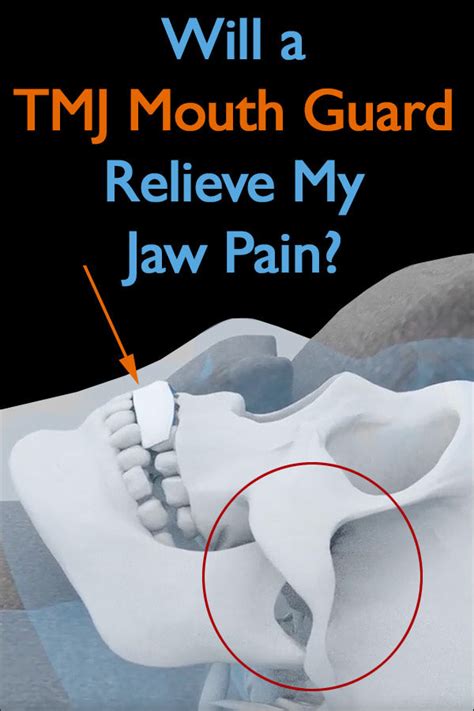TMJ Pain Relief: Your Guide to Mouthguard Usage
Temporomandibular joint (TMJ) disorder affects millions, causing jaw pain, headaches, and clicking or popping sounds in the jaw. While various treatments exist, custom-fitted mouthguards are frequently recommended for TMJ pain relief. This comprehensive guide will explore mouthguard usage for TMJ, addressing common questions and offering valuable insights.
What is TMJ Disorder and How Does a Mouthguard Help?
TMJ disorder encompasses a range of conditions affecting the temporomandibular joints, connecting your jaw to your skull. These joints allow for complex movements like chewing and talking. When these joints become inflamed or misaligned, it can lead to chronic pain and discomfort.
A mouthguard, particularly a custom-fitted one, helps alleviate TMJ pain by:
- Reducing jaw clenching and grinding (bruxism): Many TMJ sufferers unknowingly clench or grind their teeth, especially during sleep. A mouthguard acts as a barrier, preventing teeth from contacting and reducing the strain on the jaw joints and muscles.
- Realigning the jaw: A properly fitted mouthguard can help gently reposition the jaw, promoting better joint alignment and reducing pressure points.
- Protecting teeth: Beyond TMJ relief, mouthguards protect teeth from wear and tear caused by bruxism.
- Reducing muscle tension: By preventing teeth grinding, mouthguards can help relax the muscles surrounding the jaw, reducing overall muscle tension and pain.
What are the Different Types of Mouthguards for TMJ?
There are several types of mouthguards available, each with its own advantages and disadvantages:
- Boil-and-bite mouthguards: These are readily available over-the-counter and are inexpensive. However, they offer a less precise fit compared to custom-made options, potentially impacting their effectiveness.
- Stock mouthguards: These pre-formed mouthguards come in various sizes, but may still not provide an ideal fit for everyone.
- Custom-fitted mouthguards: Made by a dentist using impressions of your teeth, these provide the most accurate fit and are generally considered the most effective for TMJ treatment. They're more expensive but offer superior comfort and effectiveness.
How Do I Choose the Right Mouthguard for TMJ?
Selecting the right mouthguard is crucial for effective TMJ pain relief. Consider these factors:
- Comfort: A comfortable mouthguard is more likely to be worn consistently, maximizing its effectiveness.
- Fit: A well-fitting mouthguard will properly distribute pressure and minimize discomfort. A custom-fitted mouthguard from a dentist is the most accurate option.
- Material: Different materials offer varying levels of durability and comfort. Your dentist can advise you on the best material for your needs.
- Cost: Prices vary considerably depending on the type of mouthguard.
Are there any side effects to wearing a mouthguard for TMJ?
While generally safe, some individuals may experience minor side effects initially, such as increased saliva production, slight discomfort, or difficulty speaking. These usually subside as you get used to wearing the mouthguard. However, if you experience persistent discomfort or other issues, consult your dentist.
How long should I wear my TMJ mouthguard?
Initially, you may be advised to wear your mouthguard only at night to address sleep bruxism. However, depending on the severity of your condition and your dentist's recommendation, daytime wear might also be necessary. Consistent usage is key to achieving optimal TMJ pain relief.
How do I care for my TMJ mouthguard?
Proper care prolongs the lifespan and hygiene of your mouthguard. Rinse it thoroughly with water after each use and clean it regularly with a toothbrush and mild soap. Avoid using abrasive cleaners or hot water.
How much does a TMJ mouthguard cost?
The cost varies depending on the type and the materials used. Boil-and-bite mouthguards are the most affordable, while custom-made mouthguards from a dentist are significantly more expensive.
When should I see a dentist about TMJ pain?
If you experience persistent jaw pain, headaches, clicking or popping in your jaw, or difficulty chewing, it's crucial to consult a dentist or specialist. Early intervention can significantly improve treatment outcomes.
Conclusion
Custom-fitted mouthguards offer a valuable and often effective treatment option for TMJ pain relief. By understanding the different types, choosing the right one, and practicing proper care, you can significantly improve your comfort and overall quality of life. Remember to always consult with a qualified dentist or TMJ specialist for a proper diagnosis and personalized treatment plan. They can assess your individual needs and recommend the most suitable mouthguard and any additional therapies necessary to manage your TMJ disorder effectively.

